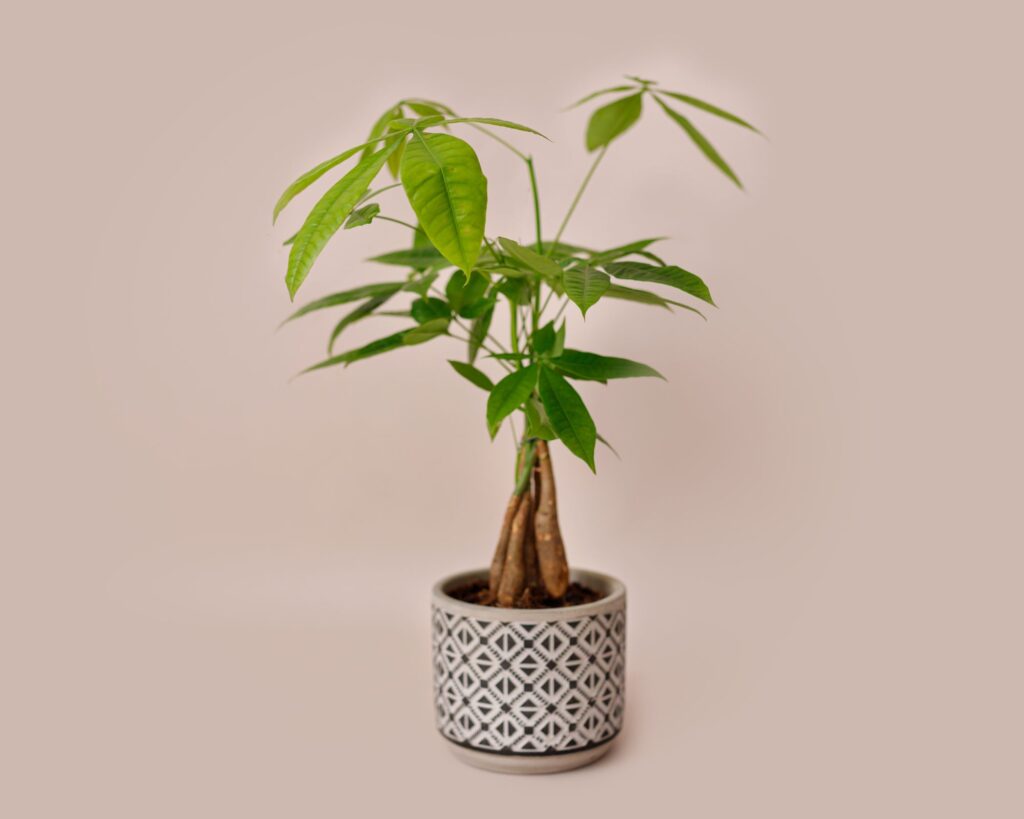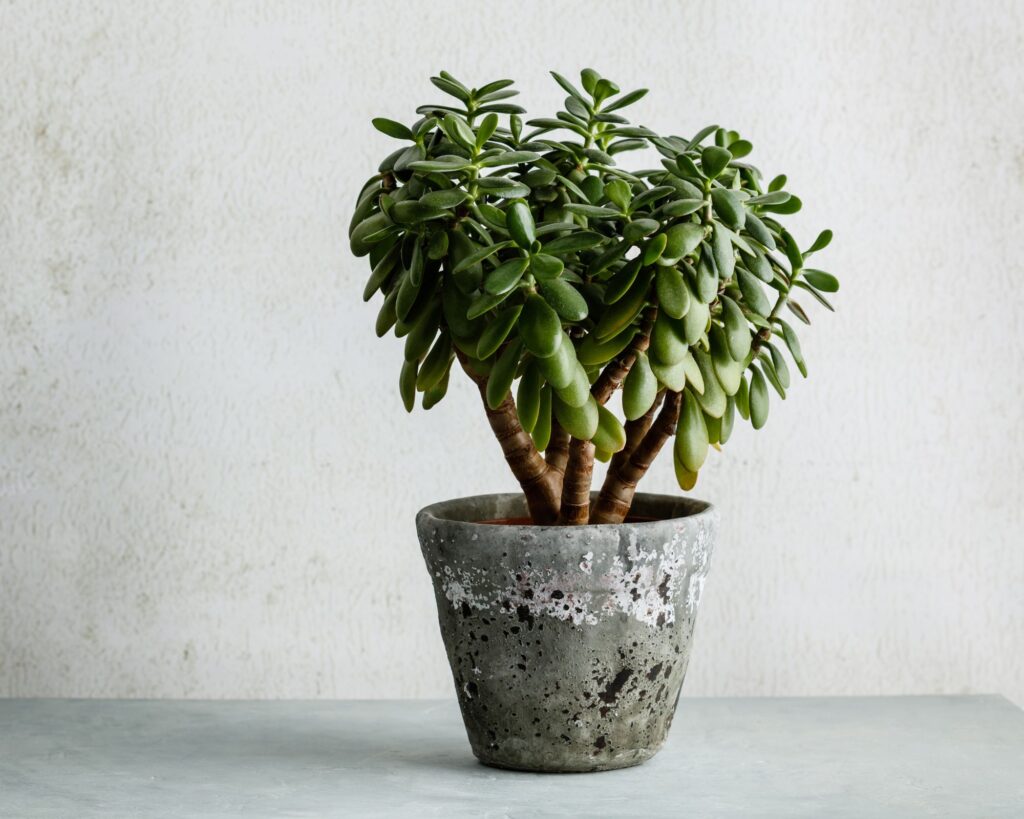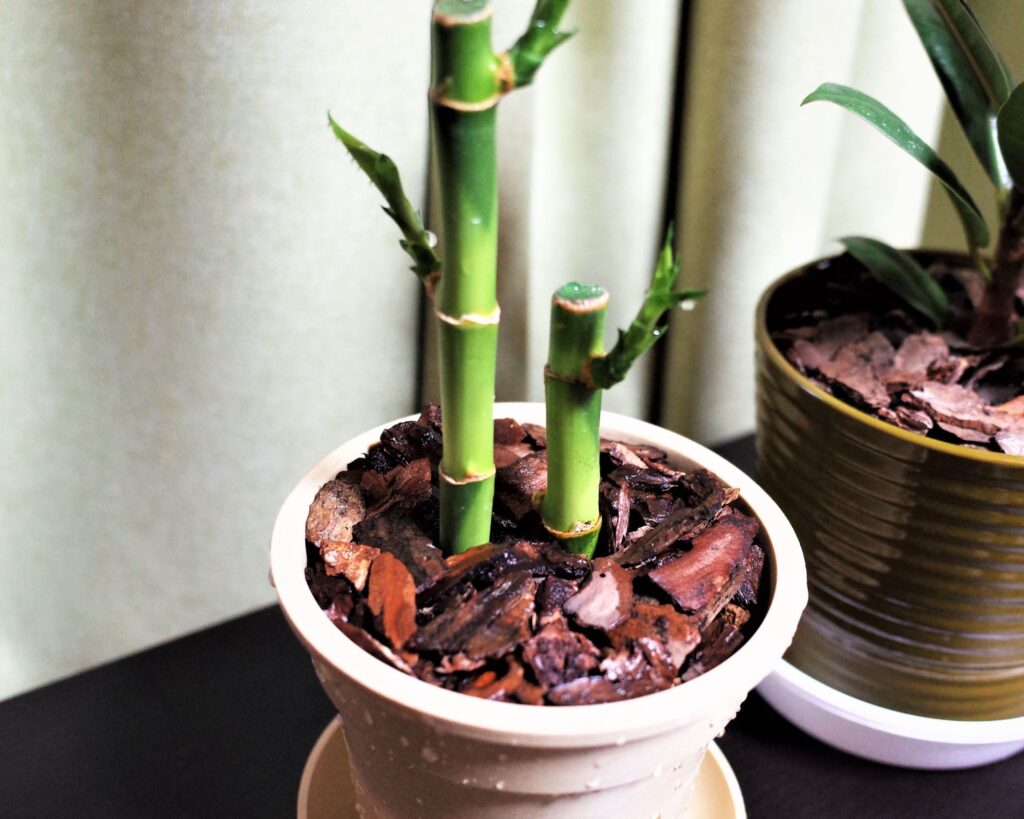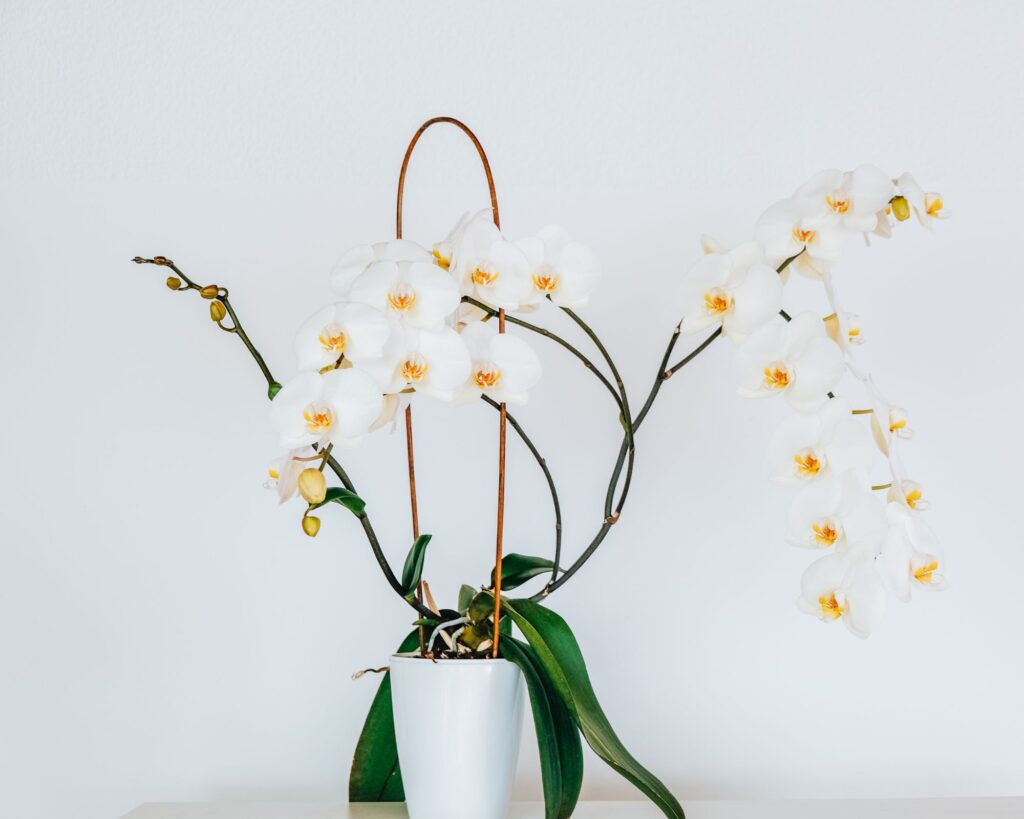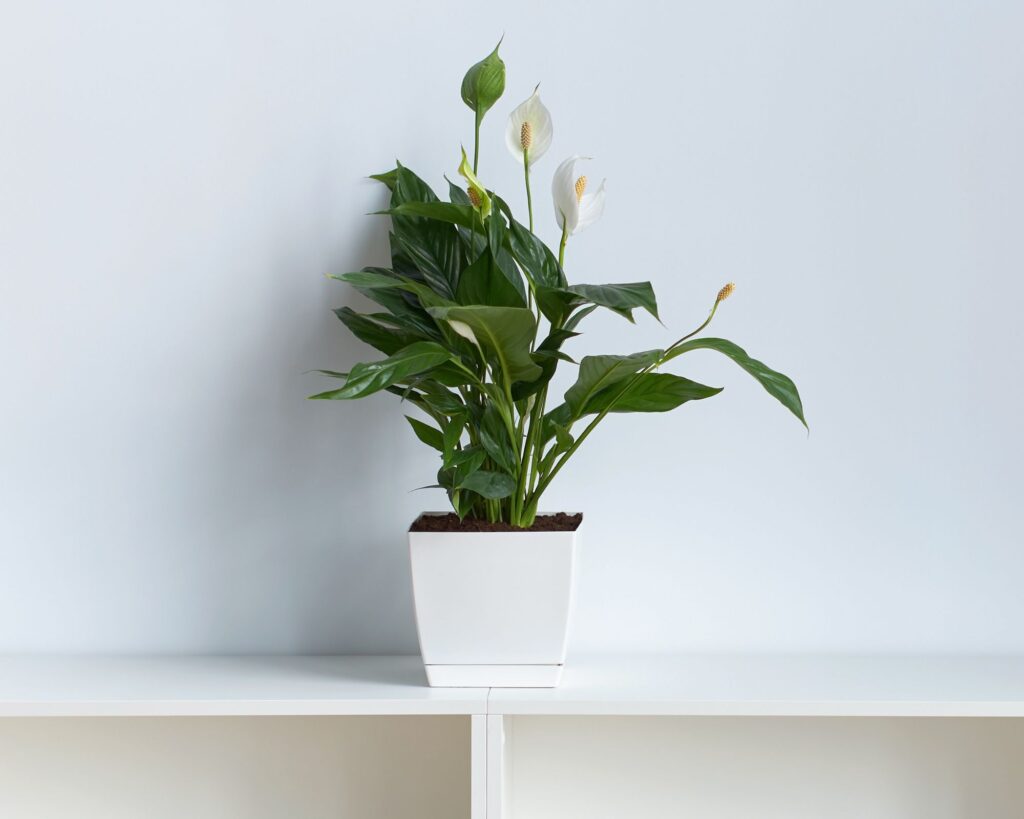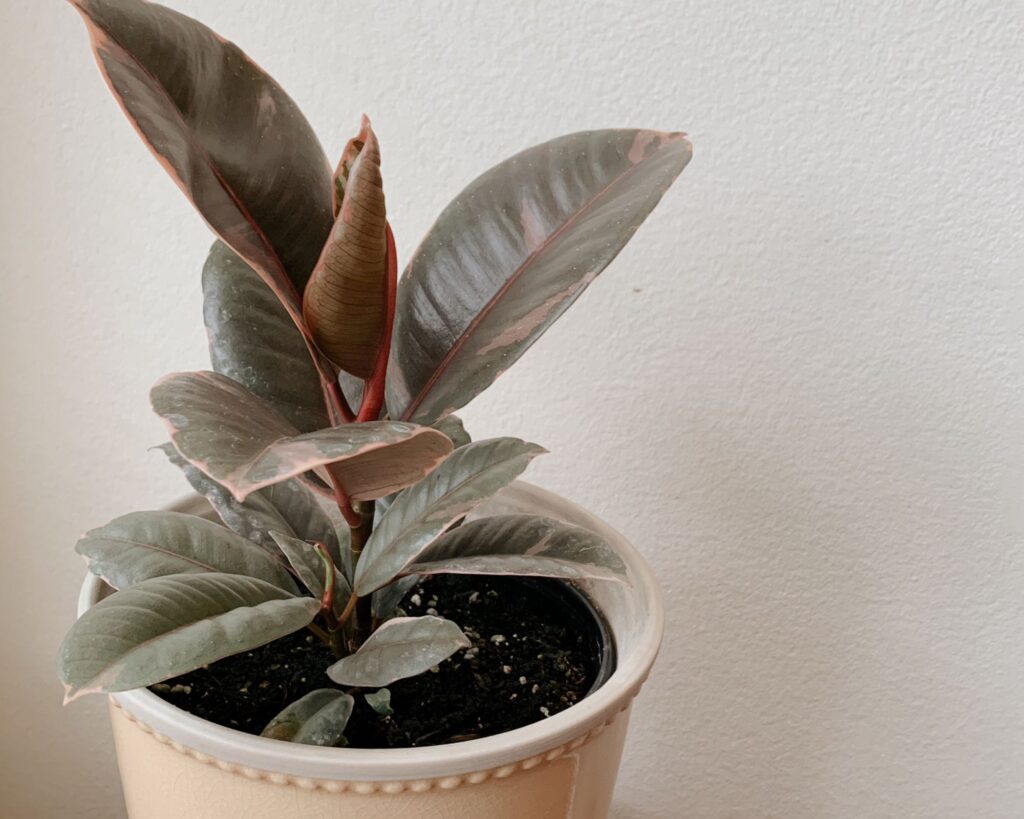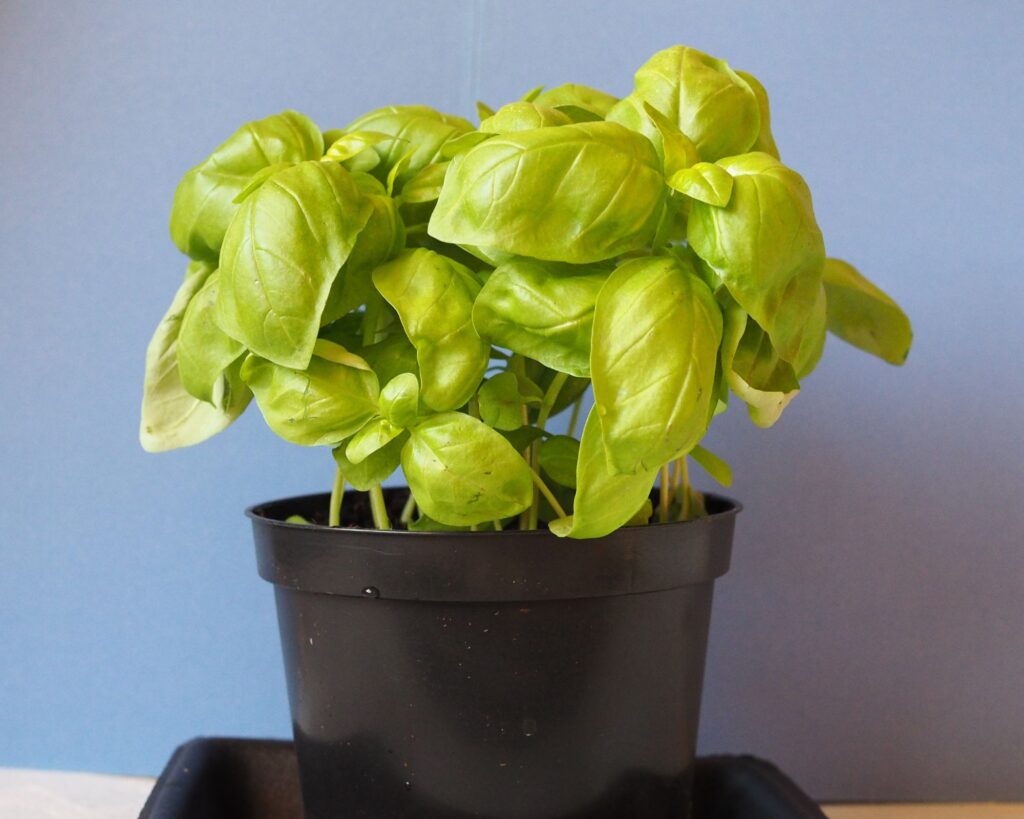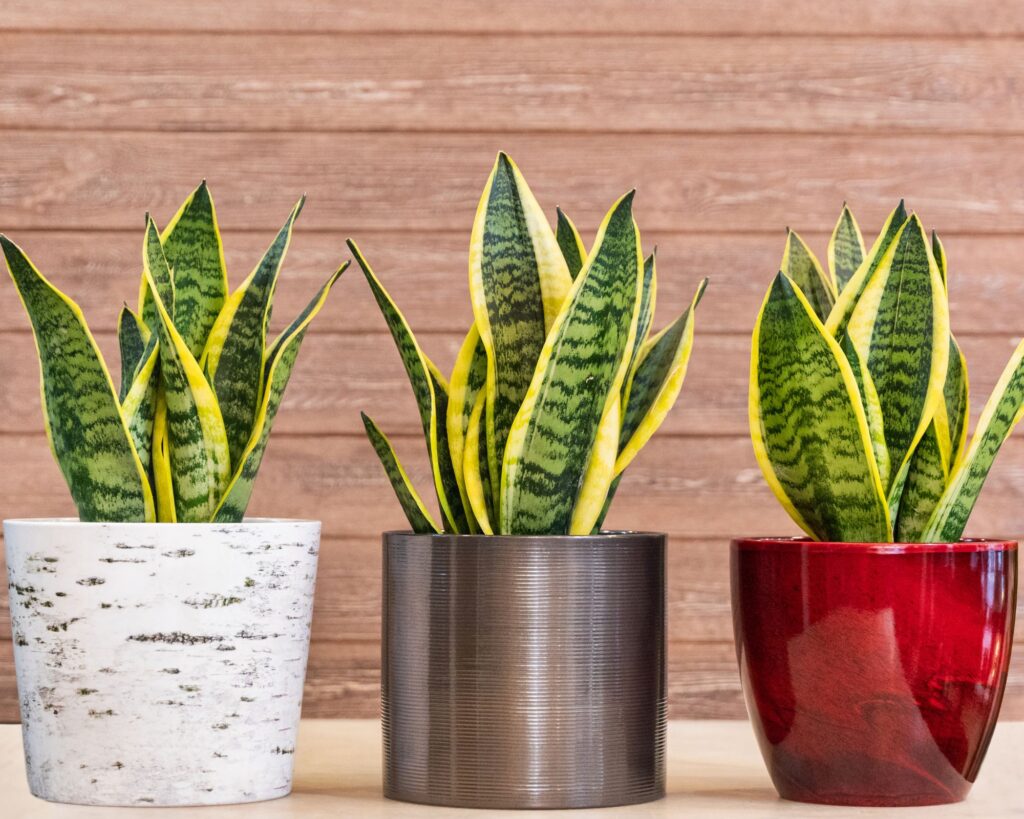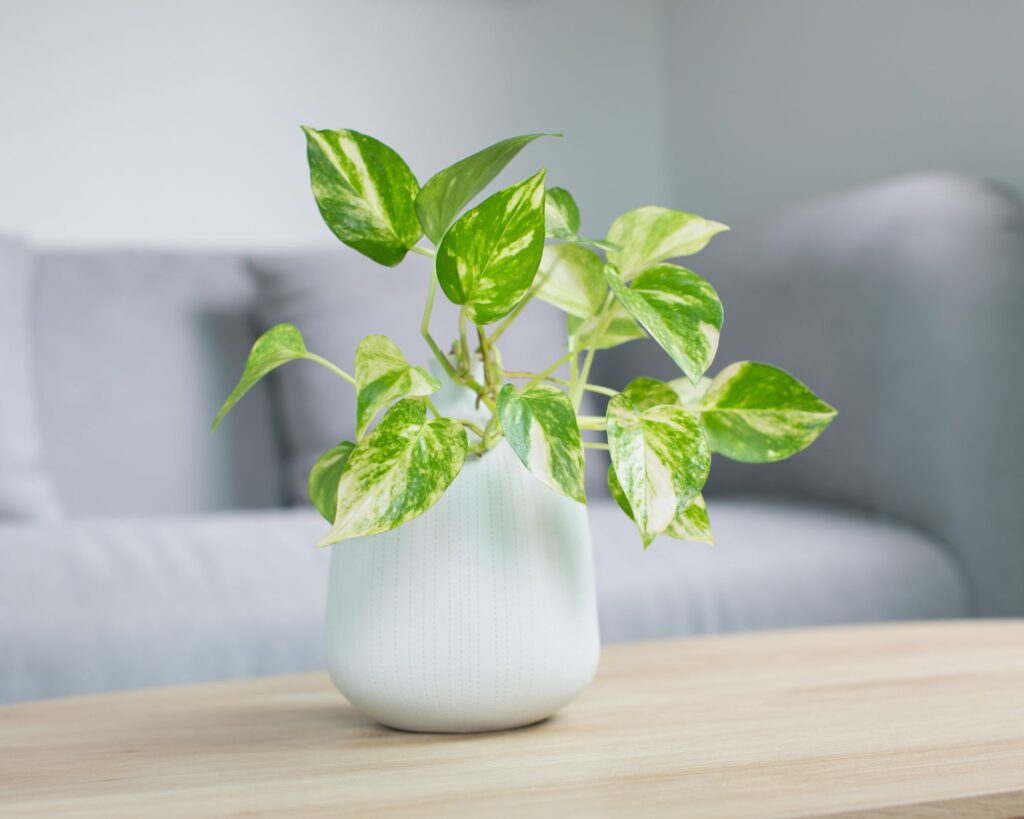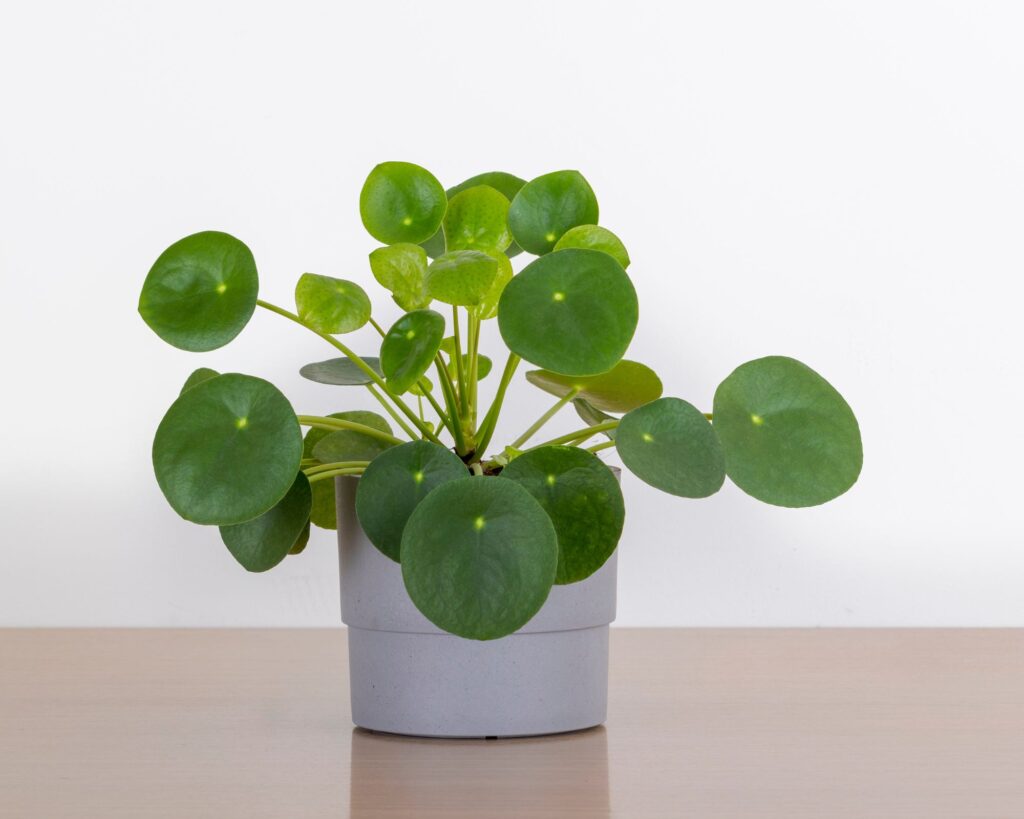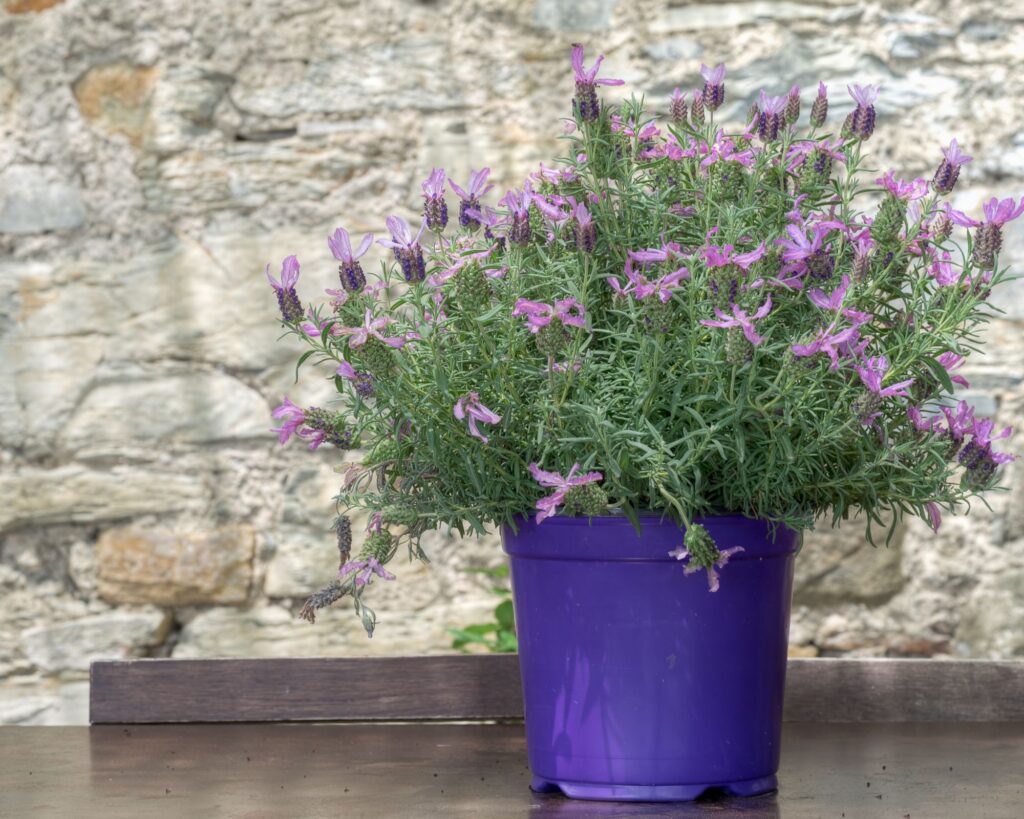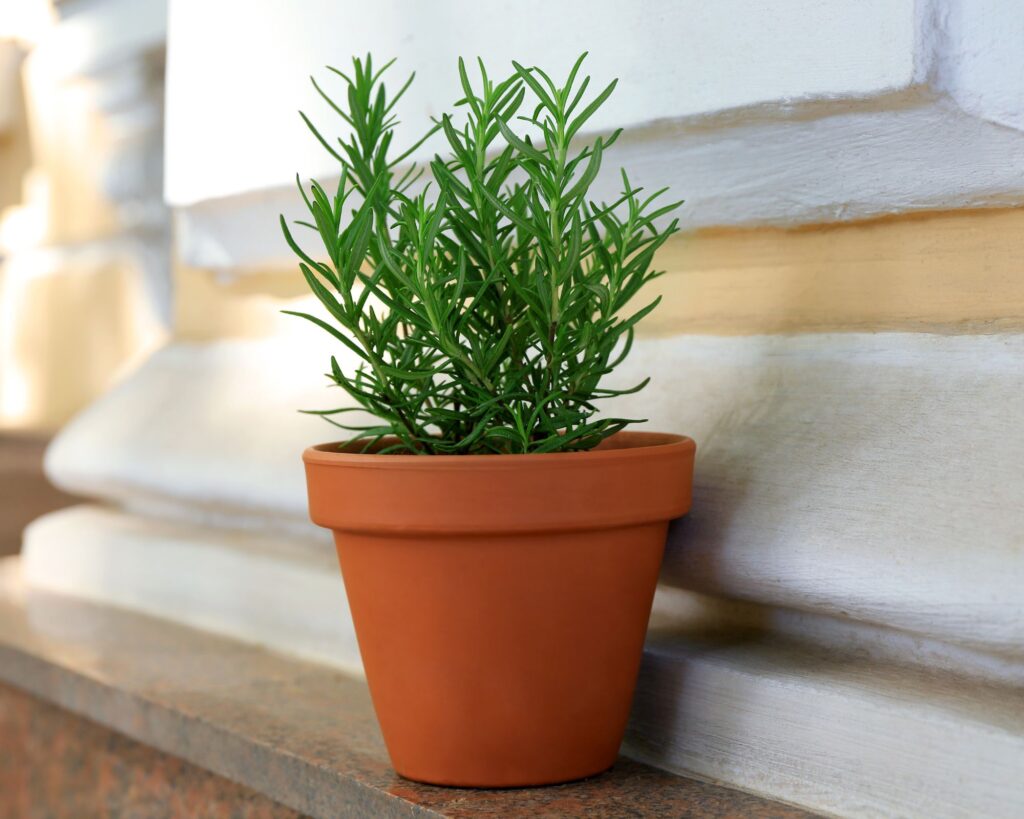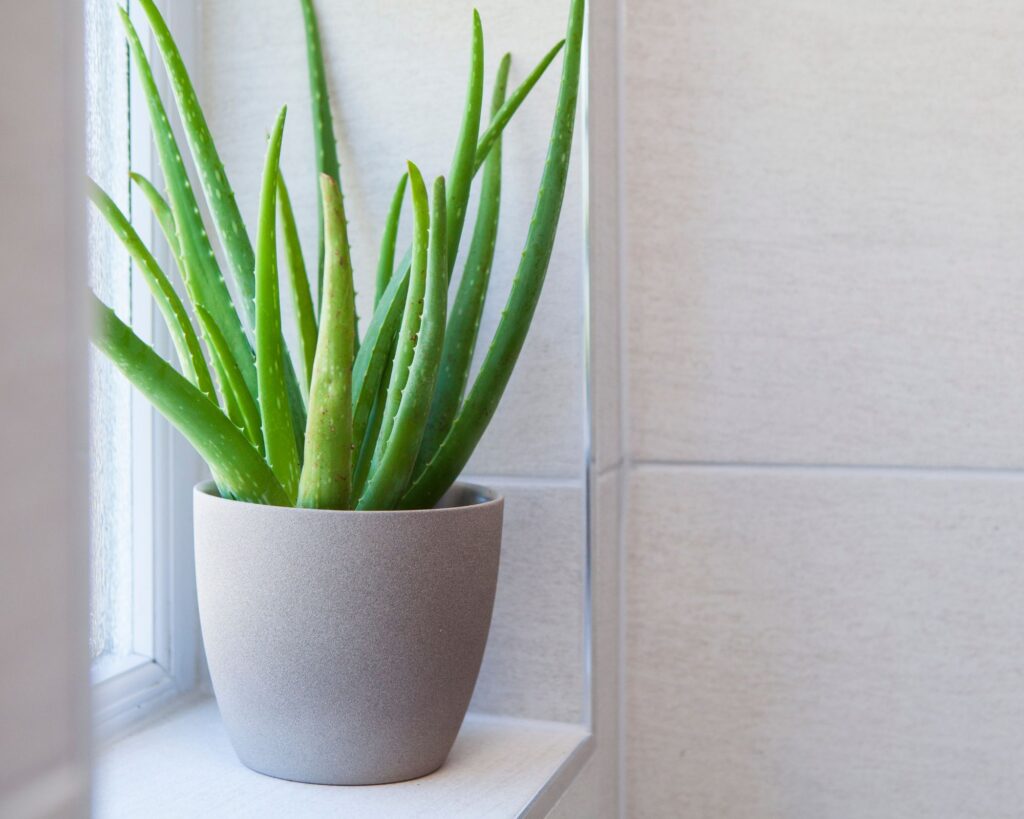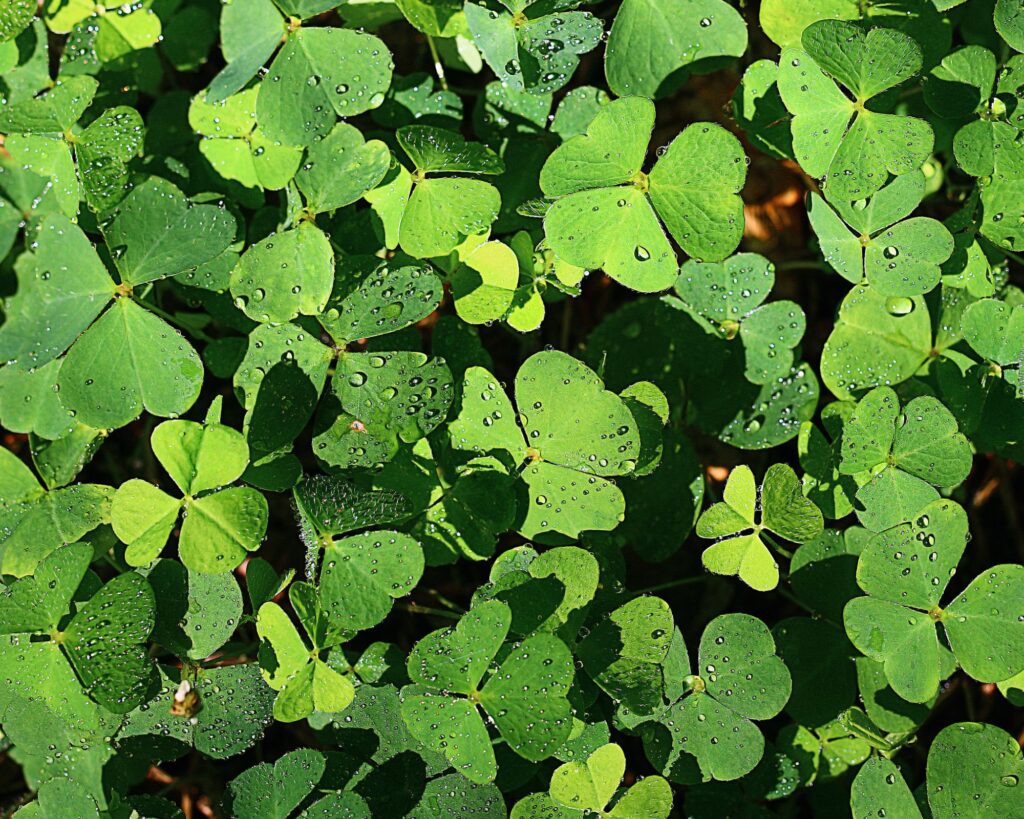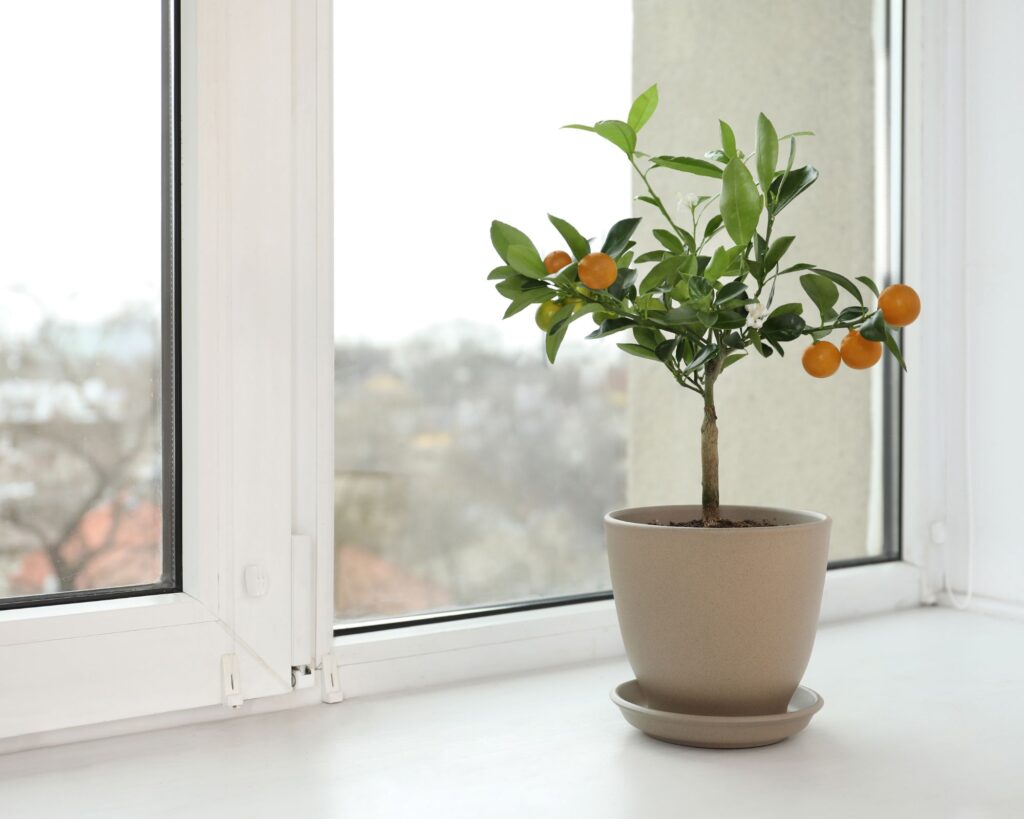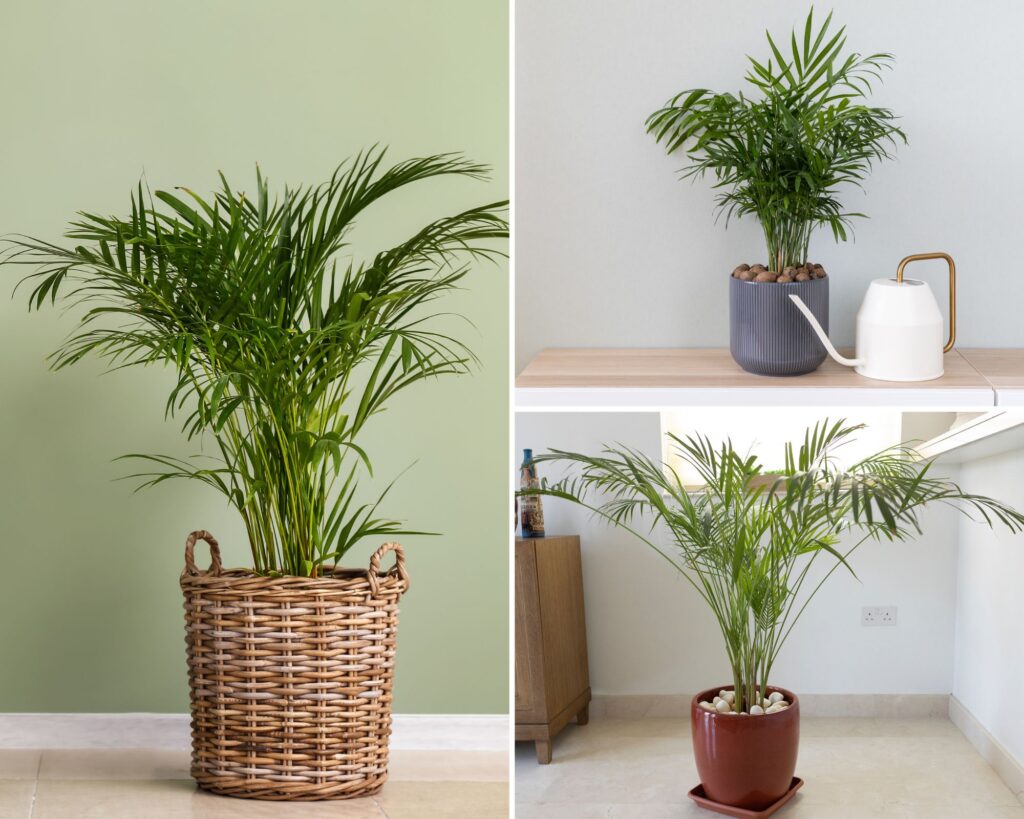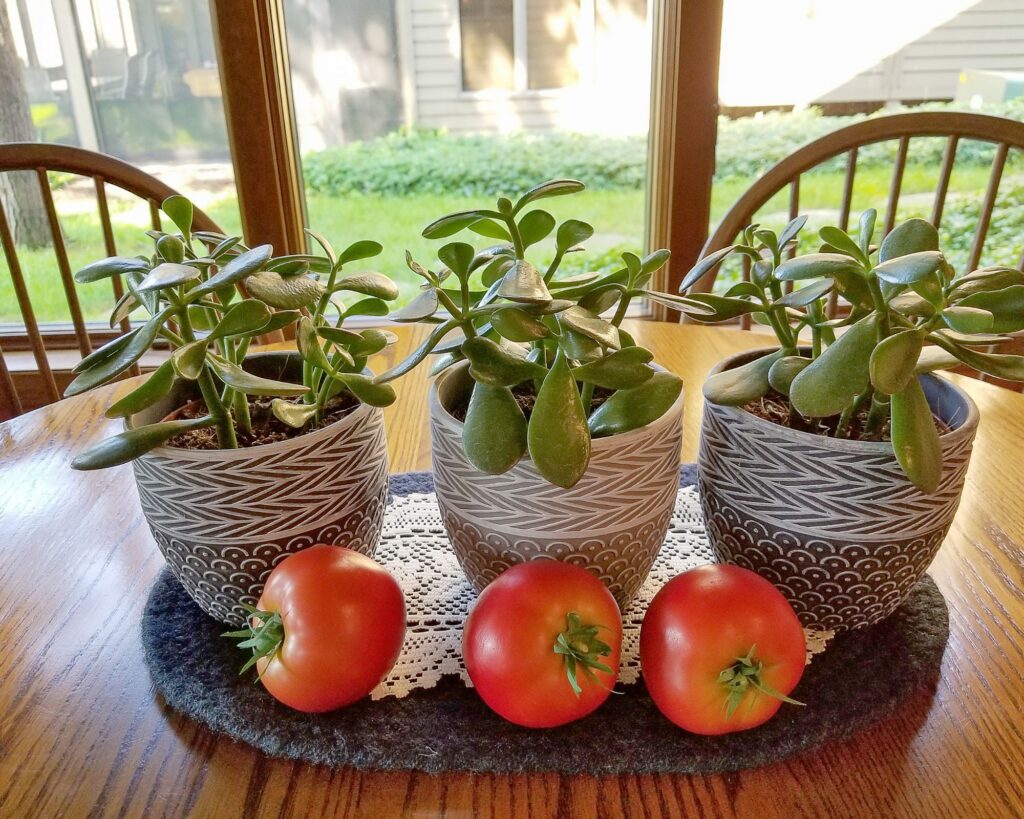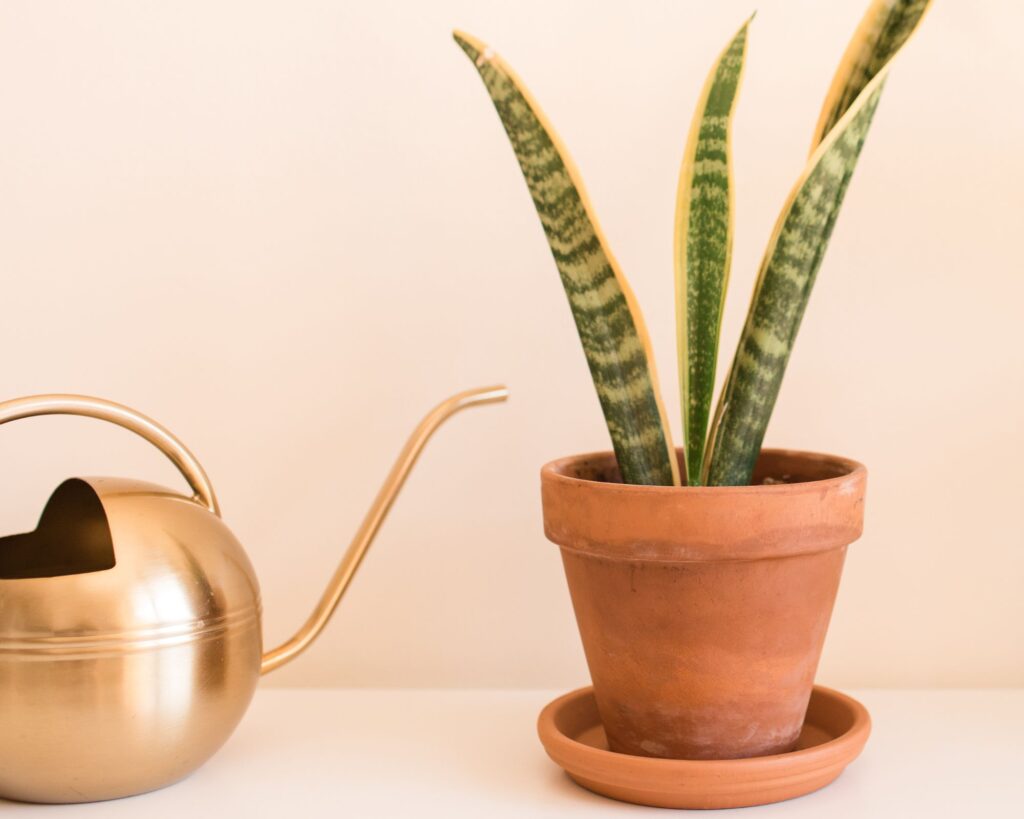Looking to attract more prosperity and good fortune into your life but not sure where to start? One of the easiest and most effective ways is by incorporating lucky plants into your living or working space.
We all want an environment that fosters success, and these plants do more than just beautify – they’re believed to enhance energy flow, improve your mood, and even boost your financial luck.
Each of these lucky plants comes with its own charm and symbolism, offering a simple yet powerful way to transform your space.
1. Money Tree (Pachira Aquatica)
The Money Tree is one of the most well-known plants for attracting wealth and prosperity.
Its braided trunk and lush green leaves are believed to symbolize good fortune, and in Feng Shui, it’s said to bring positive energy when placed in the right spot.
How to Care: Money Trees prefer bright, indirect light and need watering only when the top inch of soil is dry. Avoid overwatering, as this can lead to root rot.
To enhance its prosperity-attracting properties, place the Money Tree in the southeast corner of your home or office, the area associated with wealth in Feng Shui.
Why It’s Lucky: The Money Tree is thought to bring luck due to its leaves, which often grow in clusters of five, representing the five fundamental Feng Shui elements: wood, water, metal, fire, and earth.
A healthy Money Tree is said to attract good fortune and financial success.
2. Jade Plant (Crassula Ovata)
Jade plants, with their thick, coin-shaped leaves, are symbols of prosperity and wealth in many cultures. Often referred to as the “money plant”, they are popular gifts in business settings, as they are believed to bring success and good financial luck.
How to Care: Jade plants thrive in bright light and should be watered sparingly, allowing the soil to dry out completely between waterings. They prefer well-draining soil to prevent water from sitting at the roots.
Why It’s Lucky: Jade plants are thought to radiate positive energy and attract wealth. In Feng Shui, they are often placed near entrances, offices, or workspaces to promote prosperity.
3. Lucky Bamboo (Dracaena Sanderiana)
Lucky Bamboo is an iconic plant in Feng Shui, often used to attract luck, wealth, and happiness. The number of stalks in a bamboo arrangement plays a crucial role in determining the type of luck it attracts.
For example, two stalks are for love, three for happiness, wealth, and longevity, while eight is considered the luckiest.
How to Care: Lucky Bamboo grows well in indirect light and can be grown in soil or water. When growing in water, change the water every two weeks and ensure that the roots are submerged.
Use filtered water if possible, as Lucky Bamboo can be sensitive to chemicals found in tap water.
Why It’s Lucky: In Feng Shui, bamboo represents growth, flexibility, and endurance. Its fast-growing nature is a reminder of strength, while its hollow structure symbolizes an open, humble spirit.
4. Orchids
Orchids are not only beautiful and elegant but also associated with prosperity and good luck. They symbolize fertility, creativity, and abundance. Their unique and diverse blooms make them a favorite in many homes.
How to Care: Orchids need bright, indirect sunlight and should be watered sparingly, typically once a week. Allow the soil to dry out between waterings, and use a potting mix specifically designed for orchids to ensure proper drainage.
Why It’s Lucky: In Chinese culture, orchids are a symbol of fertility, luxury, and refinement. Their delicate, yet resilient nature makes them perfect for attracting harmony and prosperity to any space.
5. Peace Lily (Spathiphyllum)
The Peace Lily is known for its ability to purify the air, bringing peace and a sense of calm into the home. With its lush green leaves and elegant white blooms, it’s considered a symbol of tranquility, harmony, and good fortune.
How to Care: Peace Lilies prefer low to medium light and should be watered when the top inch of soil feels dry. They thrive in humid environments, so misting the leaves can help maintain moisture.
Why It’s Lucky: The Peace Lily is believed to attract good energy and promote a sense of peace. Its presence in a home or office is said to help absorb negativity, making it an excellent plant for creating a prosperous and balanced atmosphere.
6. Rubber Plant (Ficus Elastica)
The Rubber Plant, with its large, glossy leaves, is associated with wealth and abundance. Its vibrant growth and air-purifying properties make it a great addition to any home, promoting prosperity and good health.
How to Care: Rubber Plants thrive in bright, indirect light but can also tolerate low light. They need regular watering, but be sure to let the soil dry out between waterings to prevent root rot.
Why It’s Lucky: In Feng Shui, round-leaved plants like the Rubber Plant are believed to attract wealth. Placing it in the wealth corner (southeast) of your home or office is thought to enhance its prosperity-attracting properties.
7. Basil (Ocimum Basilicum)
Basil is not just a culinary herb; it is also considered a sacred plant in various cultures, symbolizing love, wealth, and protection. In some beliefs, it’s thought to attract positive energy and ward off negativity.
How to Care: Basil prefers a sunny location and needs regular watering to keep the soil consistently moist but not waterlogged. It’s best grown in well-draining soil with good air circulation.
Why It’s Lucky: Basil’s fragrant leaves are said to carry positive vibrations. Growing it in your home can attract love, happiness, and prosperity, while also promoting a sense of wellbeing.
8. Snake Plant (Sansevieria)
The Snake Plant, or “Mother-in-law’s tongue,” is renowned for its ability to purify the air and remove toxins, creating a healthier indoor environment. In Feng Shui, it is associated with strong protective and cleansing energies.
How to Care: Snake Plants are very low-maintenance and can thrive in a range of light conditions, from low light to bright, indirect light. Water them sparingly, allowing the soil to dry out between waterings.
Why It’s Lucky: The upward growth of the Snake Plant’s leaves is seen as a symbol of growth and positive energy. Placing it near entrances or in the wealth corner of your home can help ward off negative energies and promote prosperity.
9. Golden Pothos (Epipremnum Aureum)
Golden Pothos, often referred to as “Devil’s Ivy”, is considered a lucky plant due to its vibrant, cascading vines. It is believed to attract wealth, prosperity, and good luck, especially when placed in areas associated with money in Feng Shui.
How to Care: Golden Pothos thrives in bright, indirect light but can adapt to low-light conditions. Water it when the top inch of soil feels dry, but be careful not to overwater, as this can cause root rot.
Why It’s Lucky: Its heart-shaped leaves and vigorous growth symbolize vitality and abundance. It is often used in Feng Shui practices to attract positive energy and financial success.
10. Chinese Money Plant (Pilea Peperomioides)
The Chinese Money Plant, also known as the Pancake Plant or UFO Plant, is admired for its round, coin-shaped leaves. Its association with wealth and prosperity makes it a popular choice for bringing good fortune into homes.
How to Care: This plant thrives in bright, indirect sunlight and should be watered when the top inch of soil feels dry. It prefers well-draining soil and occasional fertilization during the growing season.
Why It’s Lucky: The coin-like shape of its leaves is symbolic of money and abundance, especially in Chinese culture. It’s often given as a gift to share good fortune and prosperity with friends and family.
11. Lavender (Lavandula)
Lavender is known for its calming fragrance and beautiful purple blooms. In addition to its aromatherapeutic properties, it is believed to bring good luck, peace, and harmony to the home.
How to Care: Lavender requires plenty of sunlight, so place it in a bright spot. Water it sparingly, as it prefers slightly dry soil conditions.
Why It’s Lucky: Lavender’s soothing scent is said to attract positive energy, reduce stress, and promote restful sleep. It’s also believed to bring a sense of tranquility and protection, making it a perfect addition to any room.
12. Rosemary (Rosmarinus Officinalis)
Rosemary is an herb commonly associated with protection, purification, and prosperity. It has been used in various cultures for its ability to ward off negative energy and promote mental clarity.
How to Care: Rosemary requires full sun and well-draining soil. Water it regularly but allow the soil to dry out between waterings to prevent root rot.
Why It’s Lucky: In addition to its culinary and medicinal uses, rosemary is said to attract luck, happiness, and good health. Keeping a rosemary plant near the entrance of your home is believed to protect it from negative influences.
13. Aloe Vera
Aloe Vera is well-known for its healing properties, but it’s also considered a symbol of good luck and positive energy. In many cultures, it’s believed to attract prosperity and happiness.
How to Care: Aloe Vera prefers bright, indirect light and should be watered sparingly, allowing the soil to dry out completely between waterings.
Why It’s Lucky: Aloe Vera is said to protect against bad luck and negative energy. It’s also known to purify the air, which contributes to a healthier, more positive environment in the home.
14. Shamrock Plant (Oxalis)
The Shamrock Plant, with its clover-like leaves, is a classic symbol of luck, especially in Irish culture. It’s often associated with bringing prosperity, good fortune, and happiness.
How to Care: Shamrock plants prefer bright, indirect light and need well-draining soil. Water them when the soil feels dry to the touch, but be cautious not to overwater.
Why It’s Lucky: The three-lobed leaves represent faith, hope, and love. Occasionally, the plant will produce a fourth lobe, symbolizing luck, which is where the belief in the lucky four-leaf clover originates.
15. Citrus Trees (Lemon, Orange, Lime)
Citrus trees like lemon, lime, and orange trees are considered symbols of wealth and abundance. Their round, golden fruits represent coins and are said to attract prosperity and success.
How to Care: Citrus trees need plenty of sunlight and should be watered regularly, ensuring that the soil is well-draining. They thrive in warm environments and benefit from occasional feeding with citrus-specific fertilizer.
Why It’s Lucky: In Feng Shui, citrus trees are believed to dispel negative energy and attract wealth. The fragrance of citrus blossoms is also said to uplift the spirit and bring positive energy into the home.
16. Palms (Areca Palm, Parlor Palm, Bamboo Palm)
Palm plants, such as the Areca Palm, Parlor Palm, and Bamboo Palm, are often associated with peace, balance, and prosperity. Their graceful fronds are thought to create a calming atmosphere and improve the flow of positive energy.
How to Care: Palms thrive in bright, indirect light and prefer to be kept in moist, well-draining soil. They need regular watering, but avoid overwatering as it can lead to root rot.
Why It’s Lucky: Palms are known to cleanse and purify the air, creating a healthier and more harmonious living environment. In Feng Shui, they are believed to attract luck and create a sense of calm, making them an ideal plant for both homes and offices.
Optimal Lighting Conditions for Your Prosperity Plants
Prosperity plants need specific lighting and watering routines to thrive and promote wealth in your space. Providing the right conditions ensures your plants stay healthy and vibrant.
Most prosperity plants thrive in bright, indirect light. Placing them near a window with sheer curtains is ideal. They enjoy natural sunlight but avoid direct rays, which can scorch the leaves. If natural light is limited, consider using full-spectrum grow lights.
Evaluate the light levels in your space. Use a light meter for accuracy. Ensure you rotate the plants regularly to maintain even growth. Over time, you’ll notice healthier foliage, which symbolizes growth and prosperity.
Watering Rituals for Wealth
Watering is key to your plant’s health and growth. Use room-temperature, distilled water to avoid mineral buildup. Overwatering is a common issue; always let the soil dry slightly between waterings. A finger test can help determine moisture levels.
For smaller pots, watering once a week might be sufficient. Larger pots may need less frequent watering. Ensure pots have drainage holes to prevent root rot. Consistency is crucial, as plants like routine just as much as we do.
Giving careful attention to these watering tips encourages a thriving environment. In turn, this boosts the positive energy associated with prosperity plants.
With this list of lucky plants, you have even more options to infuse your home with prosperity, positive energy, and natural beauty.
Each of these plants carries unique symbolic meanings and benefits, helping to create a welcoming environment that promotes health, happiness, and success.
Happy planting, and may your home be filled with luck and fortune! 😉

